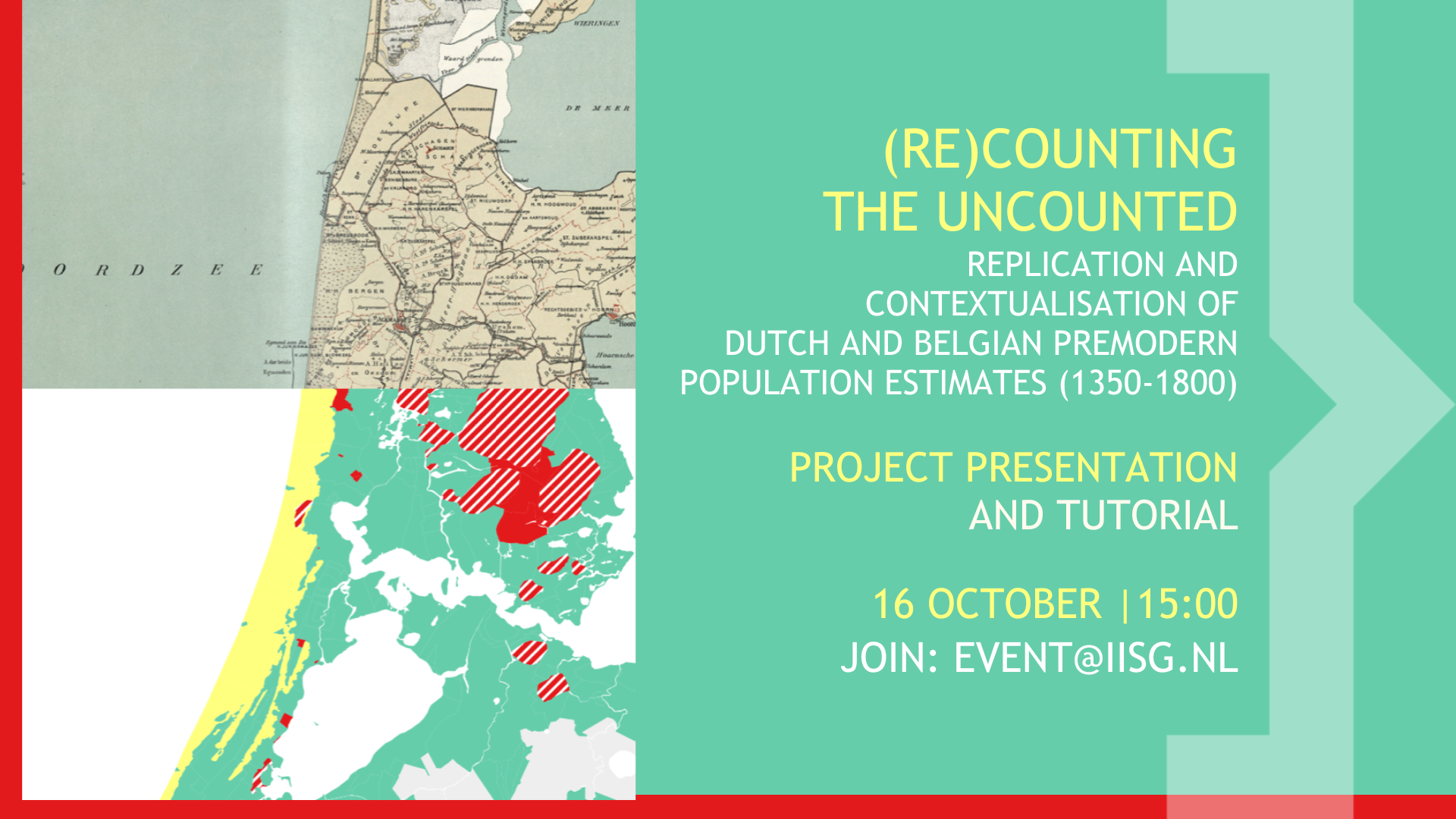(Re)counting the Uncounted. Replication and Contextualisation of Dutch and Belgian Premodern Population Estimates (1350-1800)
On Wednesday 16 October we present the project '(Re)counting the Uncounted'. In this project, funded by the Dutch Research Council NWO, we have taken on the exciting challenge of replicating and testing the findings of four so-called cornerstone publications* that provided medieval and/or early modern population estimates for the Netherlands and Belgium.
The presentations will mark the formal end of the project, and the release of the first set of data and results to the public. Thus far, more than 2,000 censuses (of hearths, communicants, houses, individuals, etc.), dating from the mid-fourteenth to mid-nineteenth centuries, from all parts of the Low Countries, including areas now in France and Germany, have been traced and catalogued. About 750 of these have been used in one or more of the four studies in question. Well over 600 censuses are now fully processed, with 75,000 observations linked to the correct historical administrative areas using a specially designed historical GIS dataset: ‘Historical Atlas of the Low Countries’. The latest public versions of the datasets can be found at our website datasets.iisg.amsterdam.
Programme
15:00 – Introduction to the research problem, the sources, and the maps
15:30 – The replication and first results
16:00 – Conversation about replication in historical sciences and discussion
16:45 – A look into the future: new research possibilities
17:00 – Drinks
Tutorial
In the morning, between 10:00 and 14:00, we will organise a hands-on tutorial for a maximum of eight people interested in working with the data in combination with the GIS maps. Lunch will be provided. Expert knowledge of GIS is not required, but we do ask that participants have QGIS installed on their laptops and are familiar with the software. If more than eight participants register, selection will be based on the relevance of the training to their research. If you wish to bring your own data, this is possible, but consultation in advance would be appreciated.
To help us organise the afternoon smoothly, please let your attendance known by sending an email to event@iisg.nl. Please make it clear whether you will be attending the presentations only or (also) the data tutorial in the morning. For more information, contact Rombert Stapel: rombert.stapel@iisg.nl.
* Faber, J.A., Roessingh, H.K., Slicher van Bath, B.H., Van der Woude, A.M. and Van Xanten, H.J. (1965) ‘Population changes and economic developments in the Netherlands: a historical survey’, in A.A.G. Bijdragen 12. Wageningen: Landbouwhogeschool, pp. 47–113; Blockmans, W.P., Pieters, G., Prevenier, W. and Van Schaïk, R.W.M. (1980) ‘Tussen crisis en welvaart: sociale veranderingen 1300-1500’, in Algemene Geschiedenis der Nederlanden 4. Haarlem: Fibula-Van Dishoeck, pp. 42–86; Klep, P.M.M. (1991) ‘Population Estimates of Belgium, by Province (1375-1831)’, in Historiens et Populations. Liber Amicorum Étienne Hélin. Louvain-la-Neuve: Academia, pp. 485–507; Paping, R.F.J. (2014) ‘General Dutch Population development 1400-1850: cities and countryside’, in 1st ESHD Conference, Alghero, IT.



